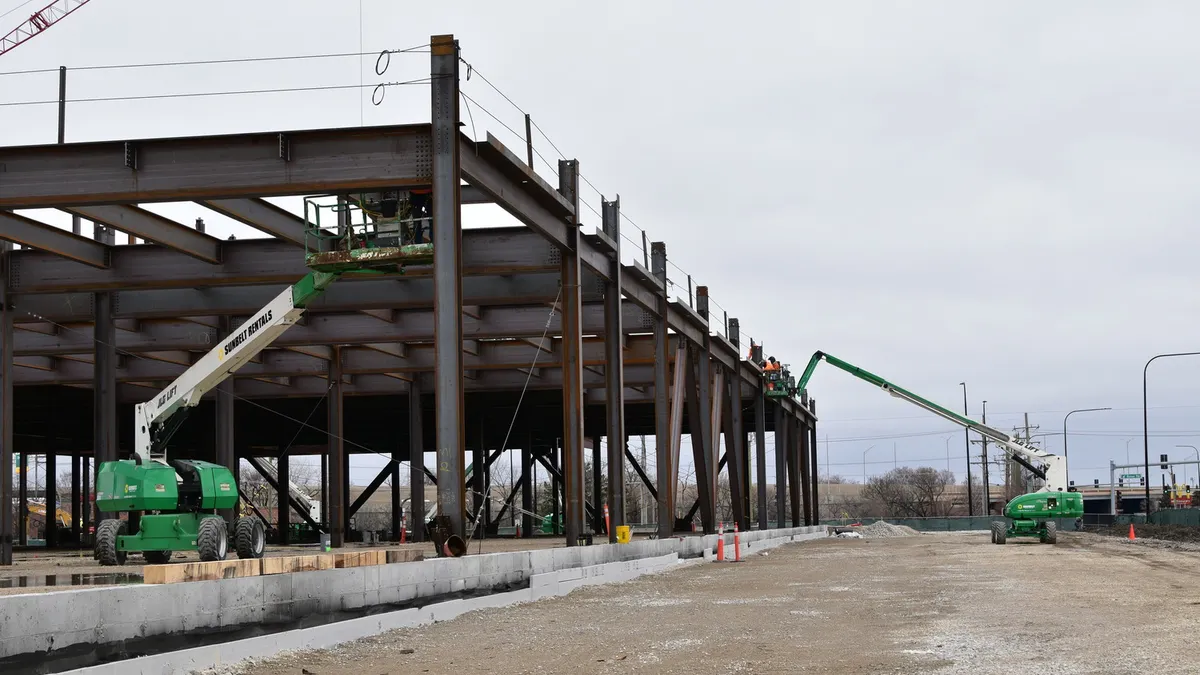Dive Brief:
- A Texas contractor claimed that it is owed $2.9 million for cleaning up contaminated soil in 2010 and 2011 at a $1.1 billion Army Corps of Engineers flood control and economic development project in Fort Worth, Texas, Engineering News-Record reported. The company also maintains that 30 of its workers became briefly ill after exposure to toxins in the dirt around their work areas.
- The Corps hired PennaGroup to perform excavation work at Panther Island, a waterfront park, event venue and outdoor recreation site in downtown Fort Worth that previously served as an oil refinery storage tank area. The company reportedly said another contractor first worked to remove contaminated soil from the project site, delaying PennaGroup's ability to do its own work. The company said it was denied change orders for delays and the extra cleanup work it performed because it complained about the presence of hazardous waste. In fact, PennaGroup was fined more than $90,000 for not meeting the original contract deadline.
- The Corps first denied the presence of petroleum hydrocarbons like benzene in the soil but later admitted to the contamination. PennaGroup said it has been paid nearly $800,000 above the original contract amount but that the amount is not enough. Although the Corps eventually accepted liability, the issue will likely be decided by the Armed Services Board of Contracts Appeals (ASBCA).
Dive Insight:
While it might seem a private contractor's chance of winning a dispute against such a large federal agency like the Corps is small, it's not impossible. In fact, late last year, the ASBCA ruled in favor of a bridge contractor that had a contract dispute with the Corps. The Corps hired the contractor to construct bridges over irrigation canals in El Paso, Texas, under a design-build contract but claimed a credit against project savings when the contractor was able to perform the work using a less expensive process. The ASBCA denied the Corps the right to a share of those savings.
Nevertheless, the Corps is the federal government's go-to agency when it comes to construction expertise. After the new U.S. Department of Veterans Affairs (VA) hospital in Aurora, Colorado, blew through its budget, doubling the project cost to $2 billion, and fell four years behind schedule, Congress put the Corps in charge of that project and any future VA construction initiative estimated at $100 million or more.
While the Corps might be able to control costs and other aspects of future VA projects, it arrived too late on the job in Colorado to prevent design errors that will force the VA to keep open the old hospital even after the new one is ready for patients. In total, the new hospital is double the square footage of the old facility, but its design is such that there is not enough space for primary care teams, psychiatric units, a residential post-traumatic stress disorder program and other special services. The VA estimates that it will cost $350 million to upgrade the old hospital so that it can remain in service until the VA finds additional space near the new facility.












